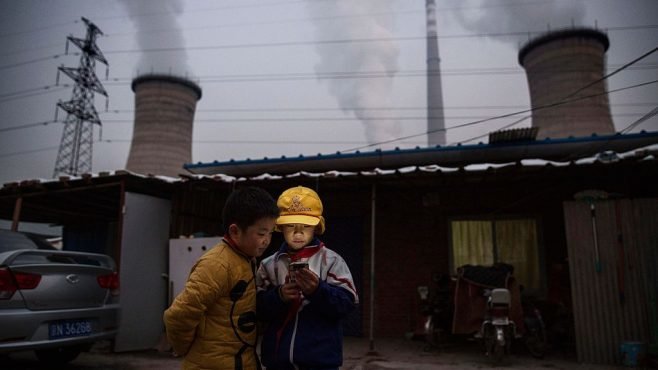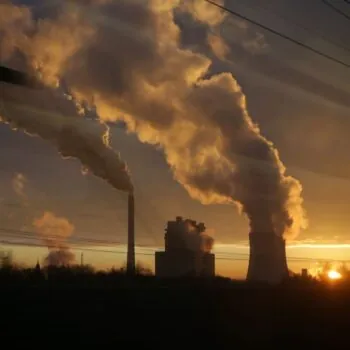Coal has to go, and fast, if net-zero emissions targets are to be met and the world to avoid dangerous climate change. The EU and US should join forces to lead the energy transition effort, argue Pieter de Pous from E3G and Steve Herz from the Sierra Club.
Of all the transformations necessary to address the climate crisis, the most urgent one is kicking the coal habit. There is no way to avoid triggering climate catastrophes without rapidly phasing out the global use of coal.
A recent report by the historically staid and fossil-friendly International Energy Agency (IEA) shows how dramatic this transition must be. According to the IEA, the richer OECD countries must eliminate coal from their power systems by 2030, and the rest of the world by 2040, to meet the global goal of net-zero emissions by 2050.
The good news is that economics increasingly favour this energy transition. New renewables are cheaper than new coal virtually everywhere. And recent analysis by Carbon Tracker, RMI and the Sierra Club shows that 39% of the world’s coal plants could be retired and replaced by new solar, wind and storage at a saving, right now. This percentage will rise to 73% by 2025.
These uneconomic coal plants would struggle to survive in competitive power markets, but more than 90% of them are shielded from competition with cheap renewables by regulatory structures or long-term contracts.
As a result, it is largely politics, not economics, that stands in the way of eliminating the dirtiest fossil fuel from the world’s electricity grids. For the most part, this is a challenge of domestic politics. Local leaders must find ways to replace coal plants with clean energy while ensuring a just transition for workers and communities.
However, international diplomacy also has a critical role to play in accelerating the shift away from coal. COP26 in Glasgow in November could be a key accelerator of this agenda, with the UK COP presidency a strong champion of international coal diplomacy.
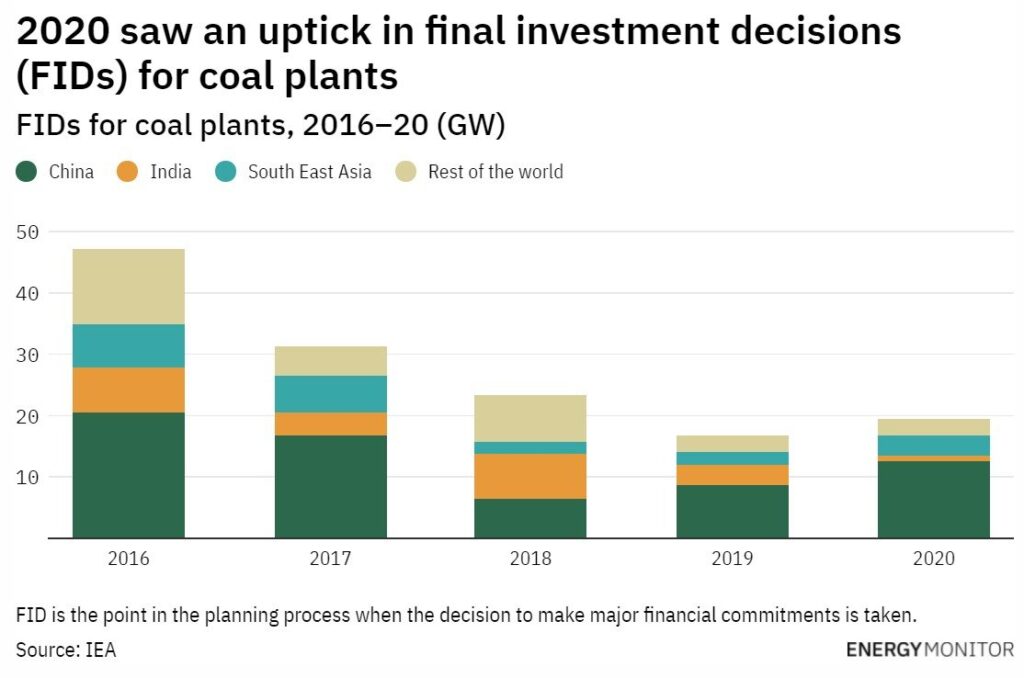
Lack of EU-US coordination
The missing ingredient is a coordinated diplomatic strategy between the US and the EU to turbo-charge ongoing efforts by the UK-led Powering Past Coal Alliance. Both have made significant strides in phasing out domestic coal fleets. They are also preparing national legislation that is widely expected to conclude their domestic coal phase-out by 2030, even if this is not stated as an explicit goal for domestic political reasons. Both also have the economic and diplomatic heft needed to leverage this domestic progress into international influence.
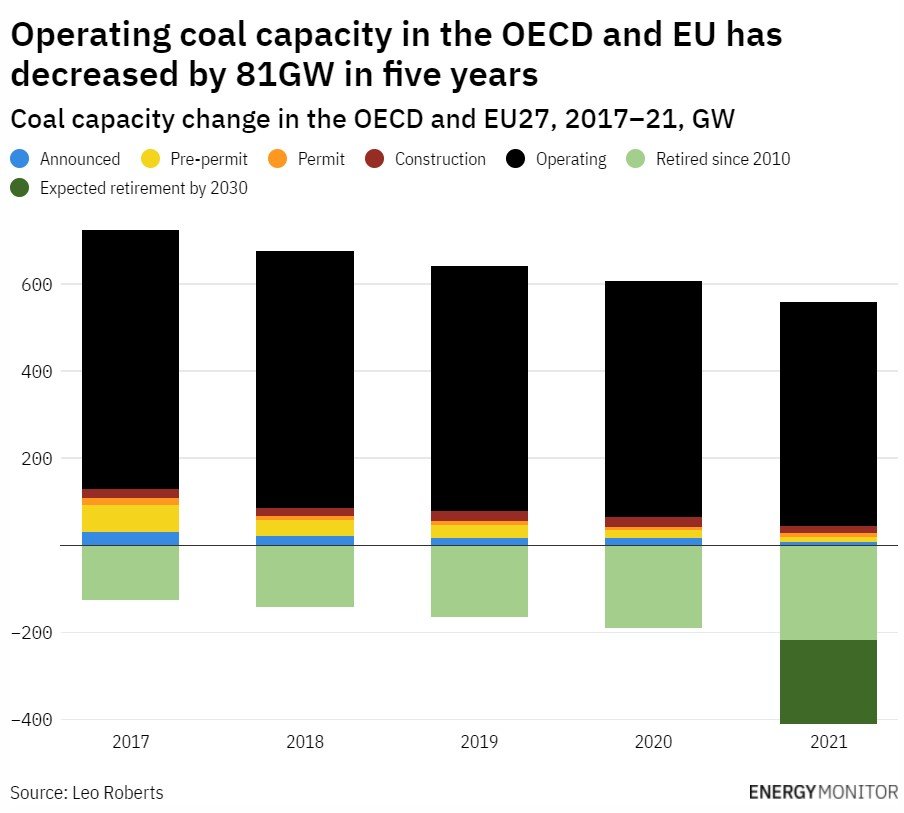
The EU has already elevated coal in its foreign policy agenda. It has challenged China to stop building new coal plants and put an end to international coal finance as part of its high-level climate dialogue with China. Last January, EU foreign affairs ministers unanimously called for a global coal phase-out as part of a radically revamped energy and climate foreign policy.
The EU and the US have the economic and diplomatic heft needed to leverage domestic progress on coal phase-out into international influence.
The Biden administration has also begun to advance a global coal agenda. On the eve of President Biden’s Leader’s Summit on Climate in April 2021, Secretary Blinken made it clear US diplomats would press their counterparts to end investments in new coal plants.
This new approach has scored early wins. South Korean President Moon Jae-in announced at the summit that Korea would end international coal finance, Chinese President Xi Jinping said China would start reducing its coal consumption from 2025 onwards, and G7 environment ministers agreed to end overseas coal finance this year and achieve an “overwhelmingly decarbonised power system by the 2030s”.
Diplomatic muscle
The next step is for the US to develop a close strategic partnership with the EU and UK to advance a global coal phase-out. This week’s EU-US Leaders Summit provides an important initial opportunity to develop a common approach to international coal diplomacy.
Three elements should be at the heart of this partnership:
- First, the US should join the EU call for a global coal phase-out and work together to convince international partners that powering past coal is sound economics and smart politics.
- Second, the US and EU should put diplomatic muscle as well as cash behind a plan to help developing countries like South Africa and Indonesia stop building new plants and begin to retire existing fleets. The US and EU should announce these plans by the G20 leaders’ Summit in Rome in October 2021, with the goal of securing concrete commitments by COP26.
- Third, they need to develop common goals for engaging countries that retain large coal fleets such as China, India and Japan.
This approach would mean pressing Japan to embark on policy work that will ensure alignment between its newly made commitments and those of its peers in the G7. This work would include committing to end overseas coal finance in its bilateral relations and planning for the retirement of its domestic coal fleet by 2030.
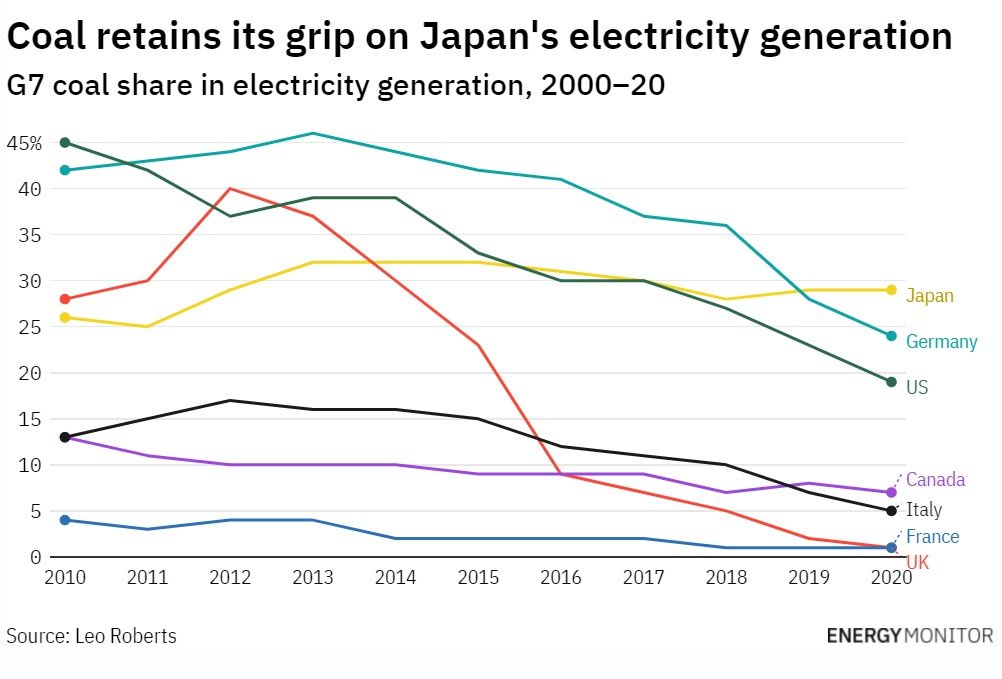
It would mean engaging China to ensure that a coal retirement pathway out to 2040 is included in its forthcoming 14th five-year plan for energy development and its action plan for peaking CO2 emissions before 2030.
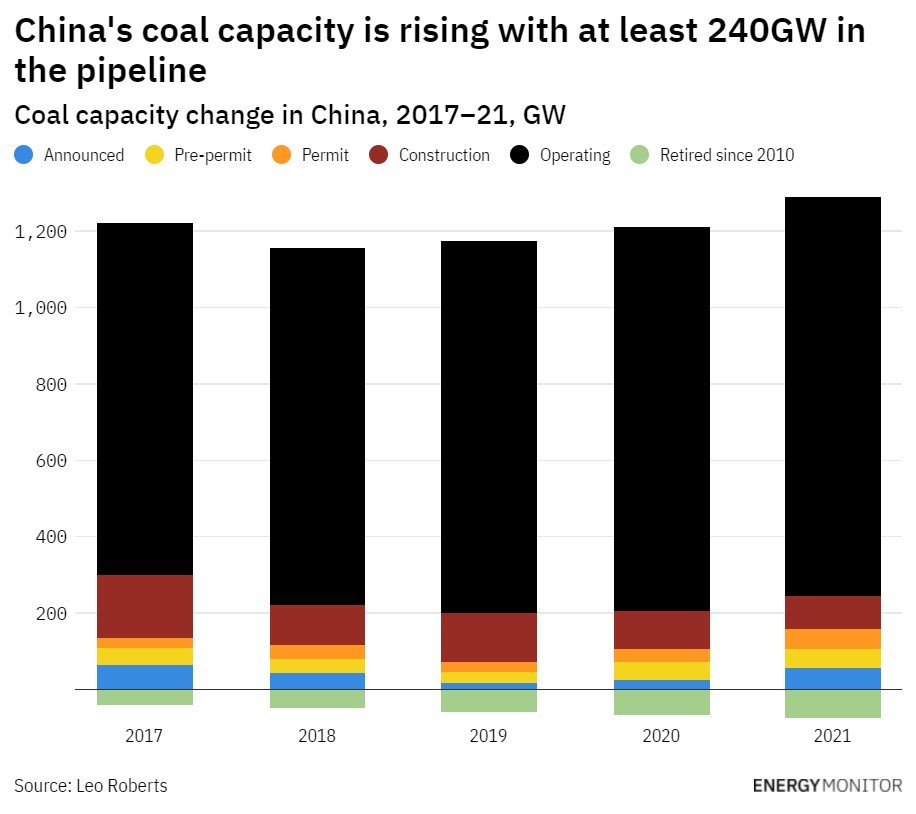
To India, the EU and the US should offer stronger collaboration around clean energy development, enhance existing research programmes and support for regional transition processes.
At the dawn of the Industrial Revolution, the EU, UK and the US led the world into an era of reliance on coal. Now they are preparing to complete the transformation of their power systems to end their reliance on coal. They need to work together hand-in-glove to bring the rest of the world along too.
This article was originally published by Energy Monitor.
